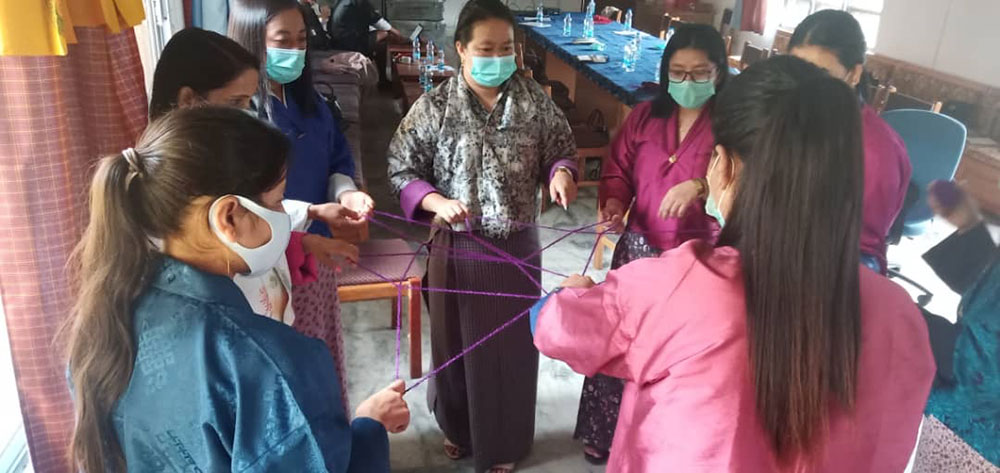Rajesh Rai | Phuentsholing
Children in Early Childhood Care and Development (ECCD) centres across the country will be taught how important Damtsi (integrity and honesty) are to leading a life free from corruption.
The Anti-Corruption Commission (ACC) in collaboration with the Ministry of Education (MoE) has developed a book called the “Damtsi Activity Book,” which will be part of the ECCD programme.
The aim of having Damtsi Activity Book for ECCD is to promote and instill a culture of integrity and a sense of intolerance to corruption among the children at an early age and ultimately to build a value-laden social fence against corruption.
An ACC official, Thinley Norbu, said there are three strategies adopted to fight corruption: public education, prevention, and investigation. “It aims to educate people on the ill effects and social harms caused by corruption, and to change their attitude and behaviours for the better, to fight corruption.”
He said the “Damtsi Activity Book” is one part of this initiative.
Regarding prevention, Thinley Norbu said it is all about research and to provide systemic recommendations. Investigation is to bring perpetrators to task.
The official said the competencies to be learned in ECCD are responsibility (accountability), honesty (integrity), and fairness (transparency).
Karma Gaylay, an ECCD specialist with the ECCD Division, MoE, said that from the education perspective, children should be educated in terms of values and ethics from very early in life.
“When you look at the character and personality of children in general, you see most of them behave just like their parents, which proves that children learn from their parents early on,” he said. “Just like any other areas of learning, children also need to learn important values and skills related to honesty, responsibility and fairness early on in life.”
Further, Karma Gaylay said that Damtsi would also involve parents. However, the Damtsi will not be taught as a curriculum. “It will be based on plays and activities for both children and parents. There are different areas of learning identified and defined as per the competencies children require as per early learning and development.”
Trainers have already been trained on the content in Sarpang and Gelephu Thromde, Phuentsholing Thromde, and Samtse.
A total of 25 participants from Sarpang and Gelephu thromdes were trained recently. This includes 23 ECCD facilitators, as well as a District Education Officer and a principal. In Samtse, 44 ECCD facilitators and education officers have been trained from 34 centres.
Thinley Norbu also said Damtsi is a part of the ACC’s Youth Integrity Programme (YIP).
The ACC official said YIP’s plan is to reach all youth in the country, including young people in the first year of service. In-school-youth, out-of-school-youth and youth in tertiary institutions are other three focus areas.
Training of Damtsi trainers has also been carried out for 18 dzongkhags and one thromde. Training will be rolled out to other ECCD facilitators in early 2022.


